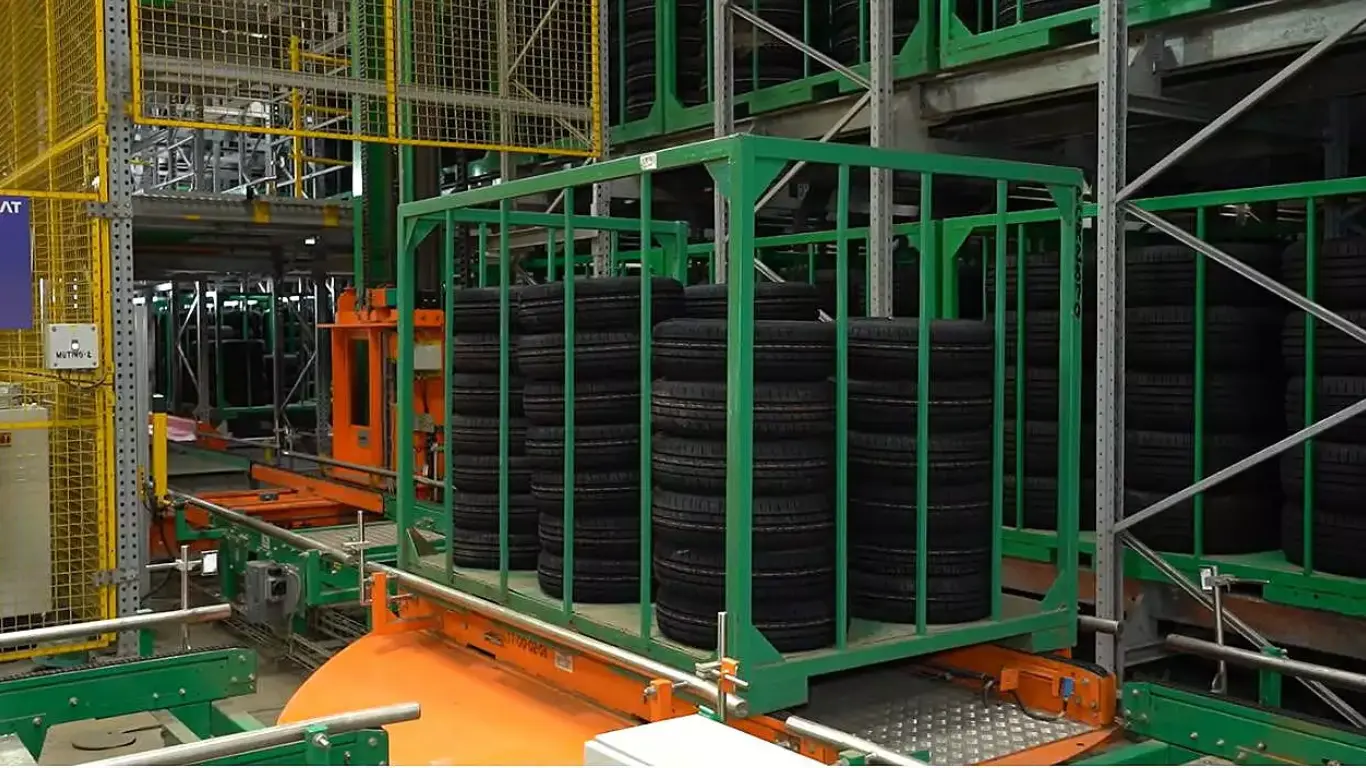CEAT Expands into US Market with Focus on Innovation and Sustainability
9875 Views
Updated On: 26-Aug-2024 11:20 AM
CEAT expands into the US market, focusing on innovation, sustainability, and increasing tyre production capacity to strengthen its global presence.
Key Highlights
- CEAT expanding into the US with TBR tyres.
- Boosting daily production capacity to 6,000 units.
- Chennai plant using 42% green energy.
- Strong international focus, aiming for 25% of total turnover.
- Halol plant awarded Lighthouse certification for digital transformation.
CEAT, a prominent tyre manufacturer and part of the RPG Group is gearing up to enter the US market with its truck and bus radial (TBR) tyres. Simultaneously, the company is working to strengthen its presence in the domestic market by expanding its production capabilities.
Expansion Plans and Capacity Boost
To support its growth plans, CEAT is expanding its TBR tyre production by adding a new production line at its Chennai facility. This expansion is expected to increase daily production by 1,500 units, bringing the total TBR production capacity to over 6,000 units per day. The commercial production at the Chennai plant is anticipated to begin soon, according to Jayasankar Kuruppal, Senior Vice President of Manufacturing at CEAT.
CEAT’s International Ambitions
Currently, CEAT generates about 19% of its turnover from international markets, with ambitions to increase this to 25%. The company’s entry into the US market represents a key step toward achieving this goal.
Adapting to Market Dynamics
To remain competitive in the rapidly evolving tyre manufacturing industry, CEAT has demonstrated adaptability and innovation. In addition to its Chennai plant, the company operates five other manufacturing facilities across India, each specializing in different types of tyres.
- Halol Plant: Produces Passenger Car Radials (PCR) and Truck & Bus Radials (TBR).
- Nashik Facility: Focuses on tyres for trucks, buses, light trucks, and agricultural vehicles, alongside PCR tyres.
- Nagpur Facility: Specializes in two-wheeler and three-wheeler tyres.
- Bhandup Plant: CEAT’s oldest facility, producing tyres for trucks, buses, and agricultural machinery.
- Ambernath Facility: Dedicated to speciality tyres, meeting a niche market demands.
Sustainability and Innovation
CEAT has also embraced sustainability, with the Chennai plant using natural sunlight for 7% of its daylight needs and sourcing 42% of its energy from green power. This focus on sustainability aligns with the company’s broader commitment to reducing its carbon footprint.
Jignesh Sharda, Senior Vice President of Quality Assurance and Sustainability at CEAT, highlighted the company's efforts to reduce greenhouse gas emissions and enhance energy efficiency. CEAT is also investing heavily in research and development to create environmentally sustainable products with minimal ecological impact.
Kuruppal added that the company has adopted innovative technologies to improve production efficiency. For example, the Chennai plant has improved the handling of silica, a material that helps reduce tyre rolling resistance. This new approach has resolved past issues of capacity loss, allowing for more efficient production.

Success in the European Market
CEAT entered the passenger radial segment in 2008 with a facility in Halol. Although a late entrant, the company quickly expanded its operations, increasing production from 8,000 tyres per day to 20,000 by 2014. To manage this increased output, CEAT ventured into the European market, where it now exports nearly a million tyres annually.
Challenges in Overseas Markets
CEAT faced challenges in gaining distributor approval without a full product range and transitioning from a low-volume production model to handling smaller batch sizes with higher variability. Despite these hurdles, CEAT has successfully adapted, reducing batch sizes and increasing efficiency while using greener materials.
Digital Transformation and Industry 4.0
CEAT’s Halol plant recently became the first tyre plant globally to receive the prestigious Lighthouse certification from the World Economic Forum. This certification recognizes CEAT’s efforts in adopting cutting-edge Industry 4.0 technologies like AI, machine learning, and IoT to address business challenges and enhance production efficiency.
CMV360 Says
CEAT’s commitment to innovation, sustainability, and market expansion positions it as a leading player in the tyre industry. With its entry into the US market and a strong focus on technological advancement, the company is well-equipped to navigate the evolving global tyre market.